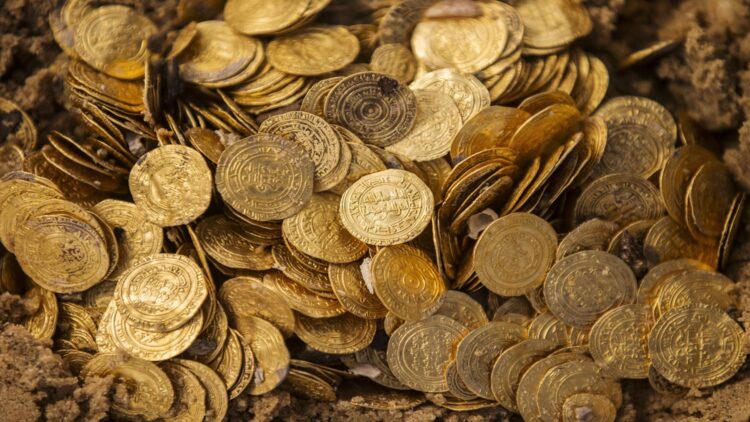A find in Sweden has left a fisherman speechless. The astonishing discovery of some 20,000 coins represents one of the largest hoards of Early Medieval silver ever found in Sweden. Near Stockholm, an amateur fisherman searching for worms unearthed one of the largest collections of medieval coins ever found in Scandinavia. The discovery was immediately reported to the authorities, who describe it as one of the largest and best-preserved accumulations of Early Medieval silver ever located in the Scandinavian country.
Treasure: a copper cauldron containing up to 20,000 silver coins, as well as rings, pearls, and pendants dating back to the 12th century
The discovery surprised not only the man but also the scientific community. The man who made the find, simply searching for worms to fish, stumbled upon a medieval treasure: a copper cauldron containing up to 20,000 silver coins, as well as rings, pearls, and pendants dating back to the 12th century. According to the official report from the Stockholm County Council (Länsstyrelsen), the treasure weighs approximately 6 kilograms and was buried with great care, possibly during a time of political instability.
“This is probably one of the largest hoards of early medieval silver ever found in Sweden”
With a discovery of this magnitude, it’s difficult to quickly and accurately analyze and count the number of objects. So, while the exact number of coins hasn’t yet been determined, initial estimates suggest up to 20,000 individual pieces, many of them remarkably well-preserved. “This is probably one of the largest hoards of early medieval silver ever found in Sweden,” commented Sofia Andersson, an antiquarian with the Stockholm County Administrative Board.
Despite the cauldron’s poor condition, most of the pieces are well preserved
Going into detail, the treasure was stored in a copper cauldron, a container now deteriorated by time, but which must have once protected the precious objects from moisture and the elements. Interestingly, despite the cauldron’s poor condition, most of the pieces are well preserved. Inside, archaeologists found not only thousands of silver coins, but also delicate decorative beads, pendants, rings, and several pieces identified as episcopal coins, a rare type of coinage produced at that time. Furthermore, preliminary analysis has revealed that many of the coins bear the inscription “KANUTUS,” the Latin form of the name Knut, suggesting they were minted during the reign of King Knut Eriksson.
Conflicts between rival lineages, and tensions with ecclesiastical powers created an atmosphere of uncertainty that could explain why someone decided to bury a fortune
Researchers are wondering why someone would bury so many valuables at that time, and the answer may lie in the political climate of those years. The end of the 12th century was a turbulent period in Swedish history. Political instability, conflicts between rival lineages, and tensions with ecclesiastical powers created an atmosphere of uncertainty that could explain why someone decided to bury a fortune of this magnitude and, for reasons unknown, was never able to recover it.
It’s important to remember that Stockholm didn’t officially exist in the 12th century
On the other hand, experts assert that the fact that pearls and other objects were mixed with the silver coins suggests that it was the personal wealth of an individual who chose to hide it, likely for their own safety. Furthermore, another interesting detail is that, although the discovery was made near Stockholm, it’s important to remember that the city didn’t officially exist in the 12th century. Certainly, there’s no doubt that this is a fascinating discovery that, once again in the history of science, raises more questions than it answers.

